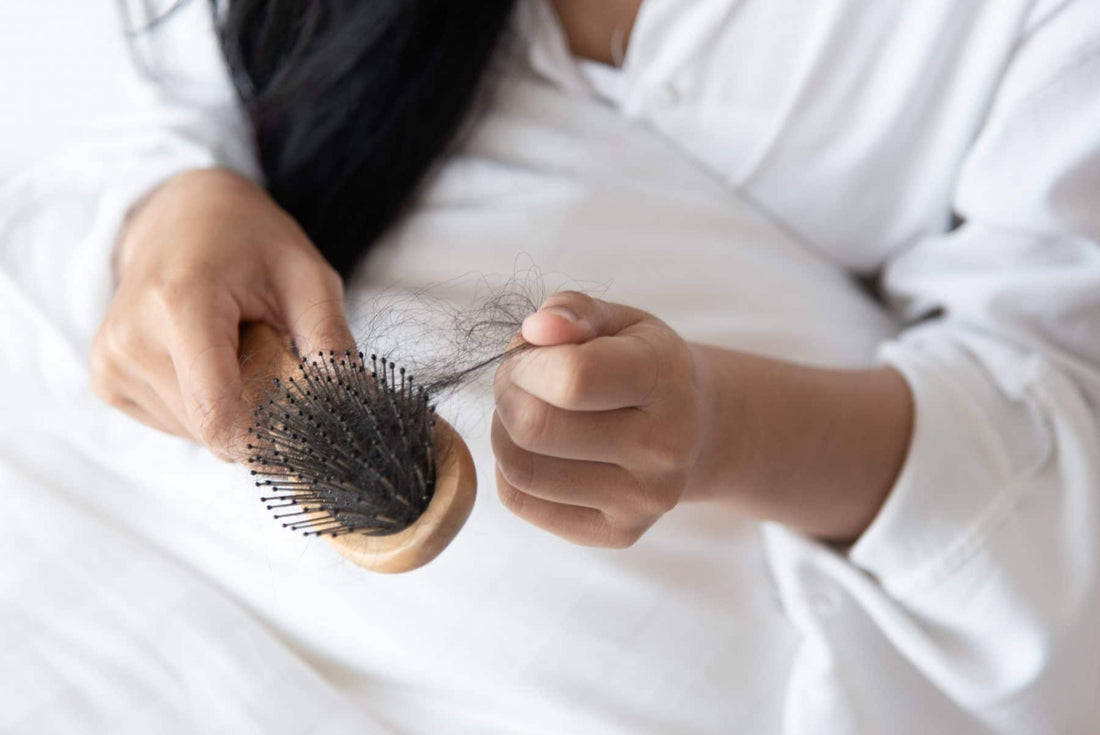Introduction
The decision to have bariatric surgery shouldn’t be taken lightly. Your medical team will help you determine whether it’s right for you once you’ve made several sincere efforts to lose weight through diet and exercise. Along with speedy weight loss, patients will experience additional side effects of which they need to be aware to prevent distress. After having bariatric surgery like a gastric sleeve, hair loss is a common, and sometimes unexpected, occurrence. It’s best to be prepared for the occurrence and know what you can and can’t do to prevent it.
Understanding the Cycle of Hair Growth
Hair grows in two phases: anagen as the growth phase; telogen as the resting phase. The telogen phase includes the period when normal hair loss occurs. Most strands have a life of between 1 and 6 years, and the duration of the shedding period is an average of three months. Factors that have an impact on the hair growth cycle include the following:
- Childbirth
- Illness
- Surgery
- Hormonal imbalance
- Chronic disease
- Trauma
- Heavy metal poisoning
- Sustained iron deficiency
- Severe dieting
- Certain medications including anti-coagulants and beta-blockers
While most of the time, a person has 90% of his or her hair experiencing growth and 10% resting, when this proportionality changes, obviously noticeable hair loss can occur.
What causes hair loss after bariatric surgery?
Hair loss after gastric sleeve and other bariatric surgeries is a commonly experienced side-effect caused by the changes in caloric intake and nutrient absorption. Patients may find it hard to include sufficient protein in their diets, and they will also probably have a stressful post-surgical experience along with hormone fluctuations. When calories and nutrients are greatly restricted, the body will re-route absorbed nutrition to organ maintenance rather than hair and other non-vital elements.
Gastric sleeve and hair loss go hand in hand. Telogen effluvium is the type of hair loss that follows weight loss surgery, occurring during the period of heaviest weight loss. It’s also normal for all races and genders to experience. Rather than bald patches, this form of hair loss usually results in overall hair thinning.
The process leading to hair loss after gastric sleeve surgery begins as more follicles enter the telogen phase. Most hair loss occurs from month one to month six post-surgery. After the sixth month marker, continued hair loss will probably have a nutritional cause.
How to prevent hair loss after gastric sleeve?
One of the most unexpected gastric sleeve side effects, hair loss, can’t be completely prevented. However, taking certain supplements can strengthen hair and mitigate loss. Two of these supplements include biotin and zinc.
If you’re wondering how to avoid hair loss after gastric sleeve surgery, the best possible approach is to follow the nutritional guidelines closely. Even while limiting caloric intake, patients should consume a range of lean proteins daily, being careful not to go past the recommended protein limit. The protein component of the diet should be 60-80 g per day. Going overboard with protein to prevent hair loss could sabotage your surgery and prevent weight loss.
The required educational and nutritional classes will provide guidance about the vitamin and supplement intake as well. A bariatric multivitamin should include B vitamins, folate, zinc, and biotin. Additional supplements will include Vitamin B12 and a calcium citrate and vitamin D combination.
Hair loss after bariatric surgery is typical, but it can also demonstrate a nutritional deficiency. Bariatric patients must keep their follow-up appointments for lab work and check-ins. These visits are essential for a safe weight loss experience with minimized side effects.
The Vitamins That Could Affect Hair Loss
Nutritional Iron – A deficiency of iron is the most common cause of nutritional related hair loss. Patients wondering how to stop hair loss after bariatric surgery should consider the evidence suggesting telogen effluvium responds to iron supplementation. Low iron levels could result in hair loss without reaching the level that signifies anemia.
Zinc
Studies have also connected hair loss to a deficiency in zinc levels. To prevent hair loss after bariatric surgery, zinc levels should be monitored closely, especially if the procedure is a malabsorptive focused procedure.
While a study in 1996 established the potential of importance of zinc as a method of how to prevent hair loss after bariatric surgery, patients should take high doses of zinc under the close supervision of a doctor to prevent zinc toxicity.
Protein
Preventing hair loss after bariatric surgery by consuming sufficient amounts of protein can be difficult, especially with surgeries like the duodenal switch. Patients who lose the most weight in the shortest period of time may be at the highest risk for hair loss.
When the stomach is made smaller, as with a gastric sleeve procedure, the presence of stomach acids and churn time are substantially lessened. Pancreatic enzymes are also re-routed to the small intestine, so insufficient digestion may be more responsible for low protein than malabsorption.
Lysine
Some evidence exists to suggest that a reduction of the amino acid L-Lysine can also cause hair loss. Restoring lysine has been shown to benefit iron levels when used in conjunction with iron therapy and to stimulate hair regrowth.
Biotin
A potential solution for what to do for hair loss after bariatric surgery is the topical application of biotin. Support for this application is largely anecdotal, but bariatric patients looking for solutions could find this to be a successful treatment. Biotin is also found in most multivitamins or can be taken as a separate vitamin as well.
Hair loss after bariatric surgery can be one of the more upsetting side effects of the procedure. While it’s unavoidable in the short term, nutrition and vitamin supplementation can prevent the continuation of hair loss beyond the 6-month mark.
If you’re experiencing bariatric related hair loss, take a breath and trust that it will grow back. You should see your doctor to make sure that your nutritional levels are adequate, especially if the hair loss continues beyond a year. In the majority of cases, the hair loss will be temporary and nothing to stress about or spend money preventing unnecessarily.
Also Read: Top 11 Common Deficiencies After Weight Loss Surgery



 Order Free Sample
Order Free Sample





